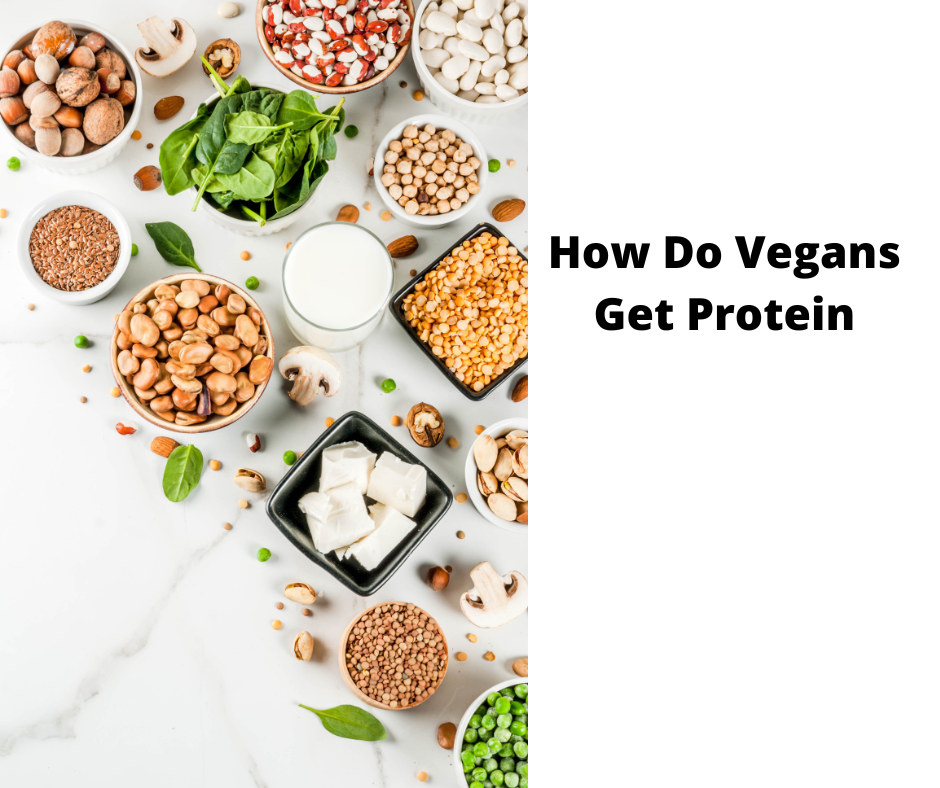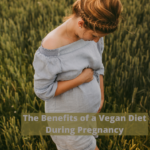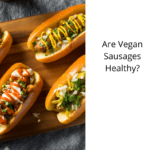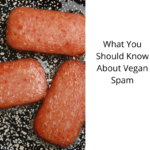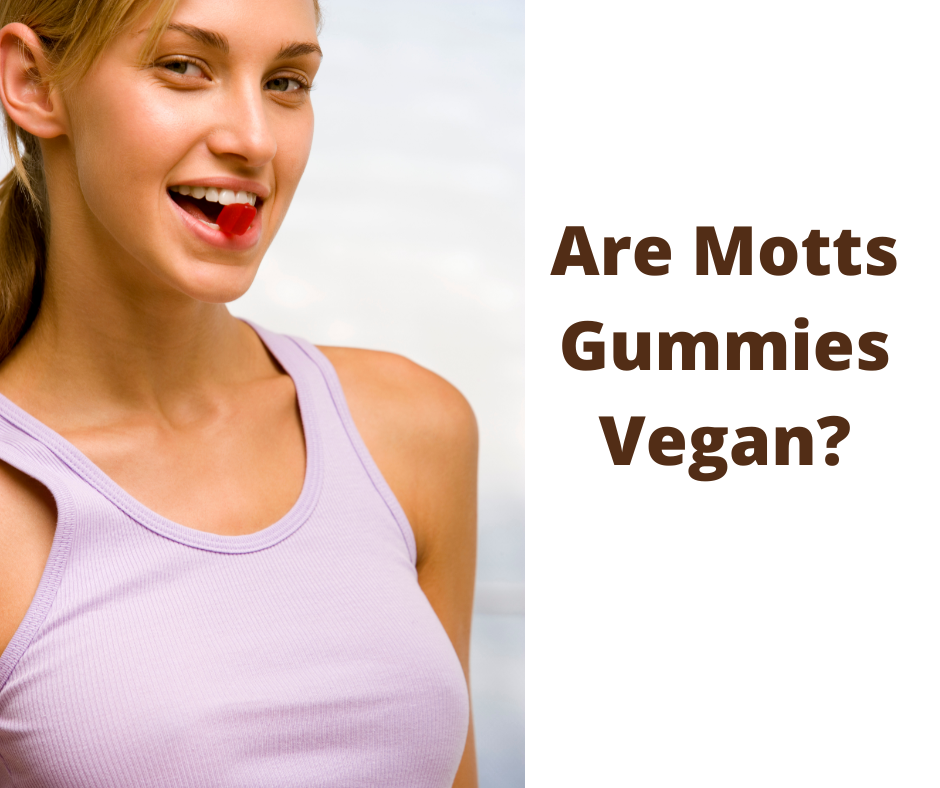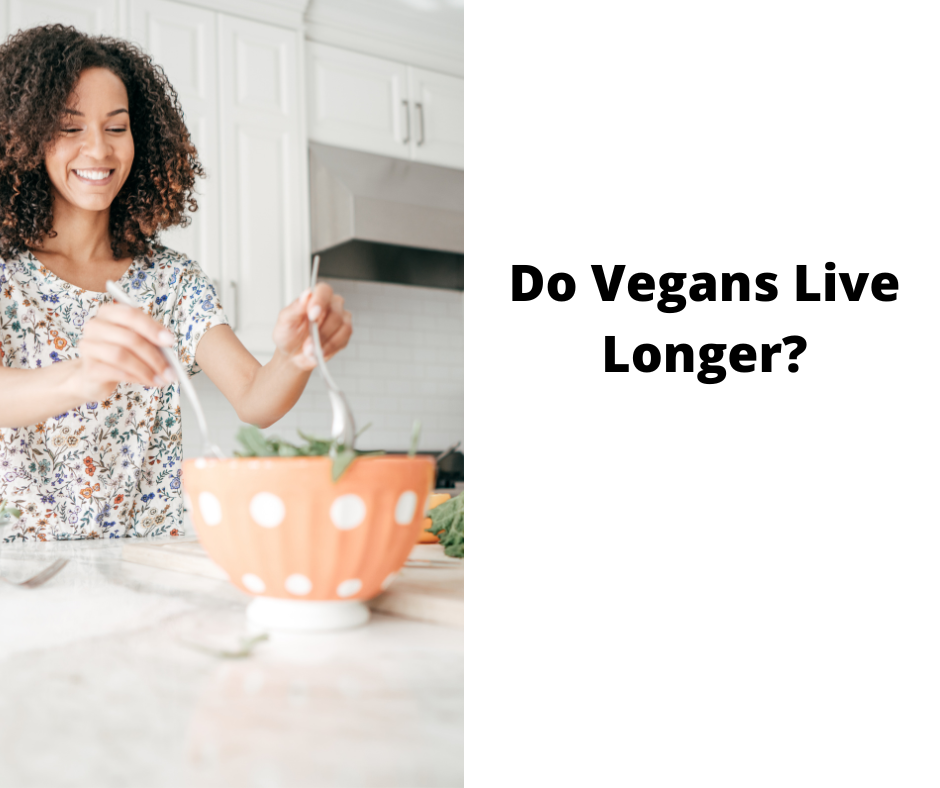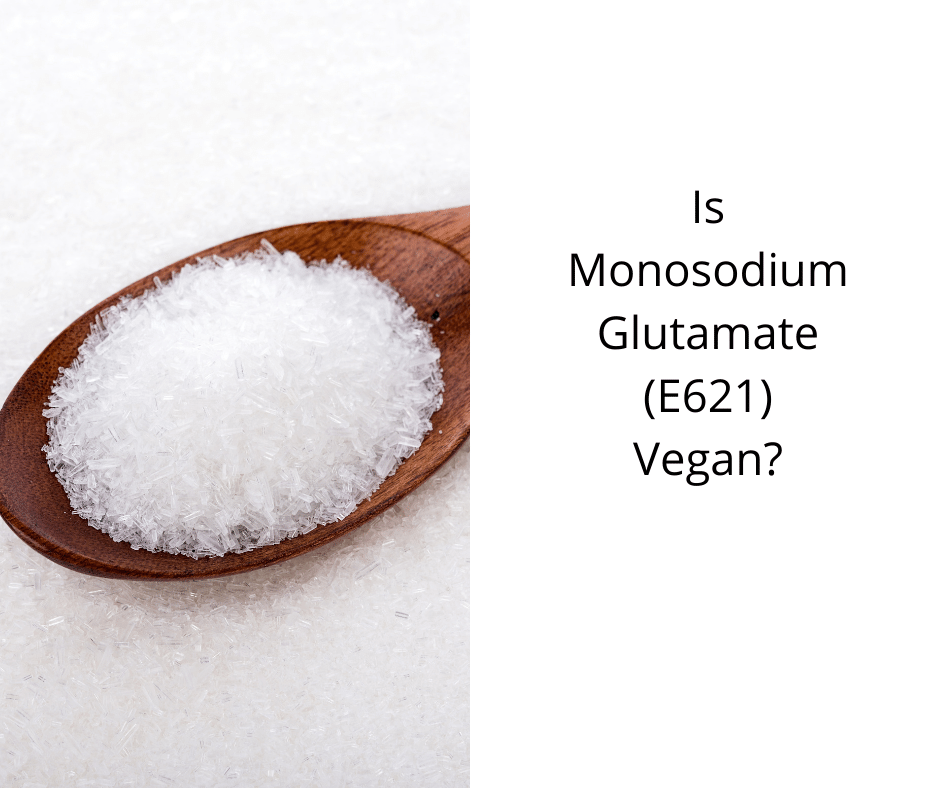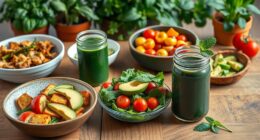For those who may not know, it’s common to question how vegans meet their protein needs. This stems from the common misconception that protein primarily comes from meat. However, vegans have adeptly learned to fulfill their protein requirements through other sources.
How Do Vegans Get Protein
Beans, lentils, tofu, and quinoa are excellent plant-based protein sources. Many experts believe that a vegan diet can be healthier than a meat-based diet, as it tends to be lower in saturated fat and cholesterol. So next time you see a vegan, don’t ask them where they get their protein — chances are, they’re getting it from a much healthier place than you are.
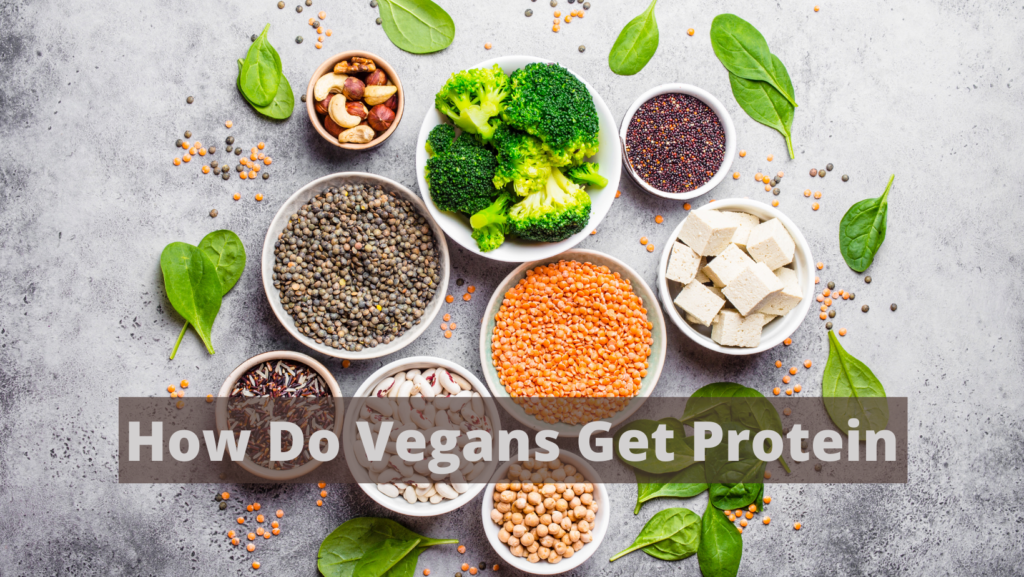
What is protein?
Many people believe that eating meat is the only way to get protein. However, this simply isn’t true. There are many plant-based sources of protein that are perfect for vegans.
For example, beans and lentils are a great way to get protein, essential vitamins, and minerals. Quinoa is another excellent plant-based source of protein, and it’s also packed with fiber and antioxidants. nuts and seeds are also a good option, as they’re high in healthy fats and nutrients.
And last but not least, there are plenty of vegan protein powders on the market that can be added to smoothies or used in baking. So, next time someone asks you where vegans get their protein, you’ll be able to give them a whole list of options!
Overeating protein
Overeating (Eating too much) protein can have negative consequences, such as stressing the kidneys, increasing the risk of osteoporosis, and promoting cancer growth. So, it’s essential to strike a balance in protein intake.
The bottom line is that vegans can quickly get enough protein from plant-based sources. Beans, lentils, tofu, quinoa, nuts, seeds, and vegan protein powders are all excellent options. A well-planned vegan diet can provide all the nutrients you need to stay healthy and fit.
What role does protein play in our bodies?
Proteins are the building blocks of our bodies. They help to repair tissue, build muscle, and support the immune system.
In addition, proteins play an essential role in metabolism, providing the body energy and helping regulate hormones. without protein, we would simply be a mass of cells. In other words, protein is pretty important stuff.
The good news is that proteins are found in various foods, including meats, poultry, fish, beans, nuts, and dairy products. So there’s no need to go on a crazy diet or anything. Make sure to include plenty of protein-rich foods in your diet, and your body will be all set.
How do vegans get their protein?
Contrary to popular belief, vegans can get plenty of protein from plant-based sources. Many vegan staples such as beans, lentils, and quinoa are packed with protein.
Essential Amino Acids
And for those worried about getting all the essential amino acids, there’s no need to worry either. As long as you’re eating a variety of plant-based proteins, you’ll get all the amino acids your body needs. So how do vegans get their protein? By eating plants!
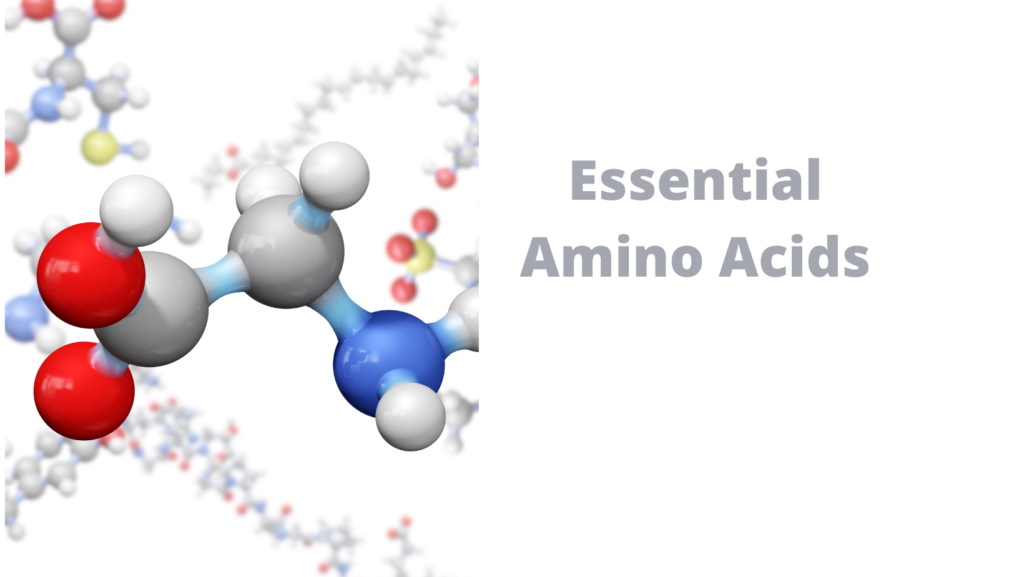
What the experts say about plant-based protein needs
According to a recent study, consuming plant-based protein may be the key to a long and healthy life. The study, conducted by a team of experts at the Harvard School of Public Health, found that people who consume a diet rich in plant-based proteins have a lower risk of early death than those who consume a diet high in animal-based proteins.
Interestingly, the study also found that the health benefits of plant-based proteins are even more significant for those who consume a lot of red meat. The data showed that people who consume a diet high in red meat have a 50% increased risk of early death. This is likely because red meat is high in saturated fat and cholesterol, contributing to heart disease.
So, what do the experts recommend? The answer is simple: if you want to live a long and healthy life, include plenty of plant-based proteins in your diet. Beans, lentils, tofu, and tempeh are all excellent sources of protein, and they can help you stay healthy for years to come.
Is vegan protein the same as animal protein?
The debate over vegan and animal protein has been around for years, with both sides adamant that their respective proteins are superior.
Each type of protein has its unique benefits, but when it comes down to it, they are both essential for a healthy diet. Animal protein is a good source of essential nutrients like iron and vitamin B12, while vegan protein sources like beans and lentils are rich in fiber and antioxidants.
Ultimately, the best way to ensure you’re getting all the nutrients your body needs is to eat a variety of protein sources. So whether you’re a die-hard carnivore or a staunch vegan, there’s no need to feud – we can all agree that animal and vegan proteins are essential for a balanced diet.
How much protein do we need?
You may have heard that protein is essential for building muscle, but how much protein do you need to eat to see results?
The answer may surprise you. While it’s true that protein is a critical ingredient in muscle growth, the amount of protein you need to consume is relatively tiny.
The average person only needs about 0.36 grams of protein per pound of body weight, which means that a 140-pound person would only need about 50 grams of protein per day. So if you want to build muscle, don’t load up on steak and eggs at every meal. A little bit of protein goes a long way.
Protein Intake
If you are an active individual but not as healthy as someone who exercises daily, you might need more protein than the 0.36 grams per kilogram amount (even 70-100 grams daily). On average, the recommended protein intake for athletes is 1.2-2.0 grams per kilogram of body weight. If you’re vegan, it’s easy to get enough protein in your diet by eating plant-based foods like beans, tofu, and tempeh.
Can athletes get enough protein on a vegan diet?
Can athletes get enough protein on a vegan diet? That question has been debated since Ancient Greece, when vegetarian athletes were first thought to have an advantage over their meat-eating competitors.
Today, the debate continues, with some athletes looking to plant-based diets for improved performance while others worry that they won’t be able to get all the nutrients they need. So, what’s the verdict? Can athletes perform at their best on a vegan diet? The answer may surprise you.
While it’s true that athletes need more protein than sedentary people, they don’t need as much as you think. The average adult only needs about 0.36 grams of protein per pound of body weight, and even highly active people only require about 0.55 grams.
For a 180-pound person, that translates to about 64 grams of protein per day. This is easily achievable on a vegan diet, especially if you’re eating a variety of whole grains, legumes, nuts, and seeds.
Many vegan athletes have more energy and better recovery on a plant-based diet. So if you’re an athlete considering going vegan, rest assured that you can still perform at your best.
Some athletes need to eat more protein than the average person, but this can be difficult on a vegan diet. Protein is found in many sources (some of which vegans eat). Still, it’s easier for vegetarians and vegans to get protein from plant-based sources because these foods contain less cholesterol, saturated fat, and sodium.
For example, one cup of cooked quinoa has 11 grams of protein and only 2.6 grams of saturated fat. This is good news for those who want to be active without risking their health.
Where do vegans get their protein?
To get enough protein, one must eat various foods containing protein. For vegans, this can be challenging because many plant-based proteins lack the amino acids needed to make complete proteins, though there are vegan foods that provide more than enough protein to meet the daily needs of a growing vegan.
Vegetarians and vegans need to emphasize vegetables in their diets because they provide higher nutrients, such as fiber and vitamins. Not only are vegetables naturally packed with fiber and vitamins, but they also have high water content, allowing them to fill you up faster than other types of food. Vegetables like broccoli, spinach, kale, and collard greens also have a low glycemic index, making them easier on your digestive system.
Fruits are also good protein sources for vegans because they’re typically lower in sugar than most other fruits. Besides providing you with the necessary protein to avoid getting sick or starving while trying to build muscle mass, fruits contain antioxidants and various vitamins that can benefit your health. They typically pack a lot of nutrients without having too many calories, which is especially helpful for people trying to lose weight or maintain their current weight level.
Protein powder is another way for vegans to get their share of protein supplements daily. This is convenient because it allows you to mix it into smoothies or juices without having it taste bad or cause any side effects from excessive amounts of added sugar.
For many, the thought of a vegan diet conjures images of leafy greens and tofu. While it’s true that these foods are staples of a vegan diet, they are far from the only options available.
Plenty of plant-based sources of protein can help vegans meet their daily needs. beans, nuts, and seeds are excellent protein sources, as are certain grains like quinoa and amaranth. Even some vegetables, such as broccoli and Brussels sprouts, contain a significant amount of protein.
With so many delicious and nutritious options, it’s easy to see how vegans can get all the protein they need.
Plant-based protein sources
Anyone who has tried to follow a plant-based diet knows that finding protein sources can be challenging. While plenty of beans and tofu products are on the market, they can quickly become boring.
Fortunately, there are a few other options for the adventurous eater. For example, tempeh is a fermented soybean product with a slightly nutty flavor. Seitan, on the other hand, is made from wheat gluten and has a chewy texture. Quinoa is another popular option, as it is high in protein and contains all nine essential amino acids.
With so many different plant-based protein sources available, there’s no reason to ever get bored with your food again.
Tofu vs. Other Proteins
There’s no denying that tofu has a bit of an image problem. For many, the word conjures up images of bland, rubbery food that’s about as appetizing as cardboard.
However, tofu is delicious and versatile food used in various dishes. In addition, tofu has several advantages over other types of protein. For example, tofu is low in calories and fat and a good source of vitamins and minerals.
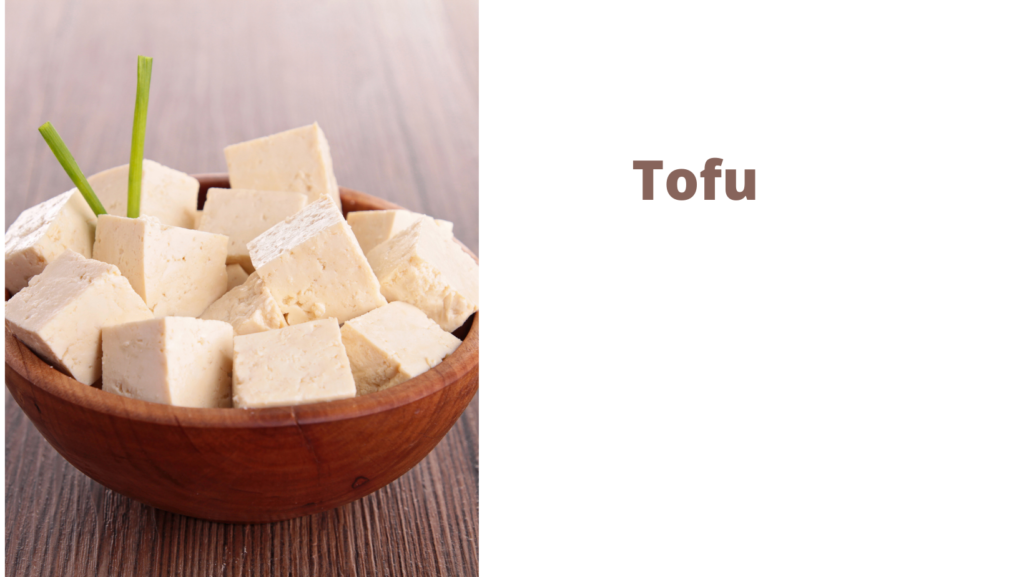
Tofu is one of the most popular plant-based proteins and contains all the essential amino acids your body needs. It is low in fat, cholesterol, and sodium and comes in various textures and flavors to suit any palate.
If you’re looking for a protein that offers familiar flavors, try tempeh or edamame beans. They blend easily with a wide range of dishes and are flavorful additions to salads, sandwiches, soups, main dishes, stir-fries, and more!
Red meat is high in calories and fat and can also contain harmful chemicals. So if you’re looking for a healthier option, tofu is a great choice. Plus, with so many different types of tofu available on the market, there’s sure to be one that suits your taste. So don’t write off tofu just because of its reputation – give it a try, and you might just be surprised.
Chickpeas and Lentils
Chickpeas and lentils are two of the best options for plant-based protein. These little powerhouses are packed with protein, fiber, and other nutrients. And they’re incredibly versatile, so you can use them in various recipes.
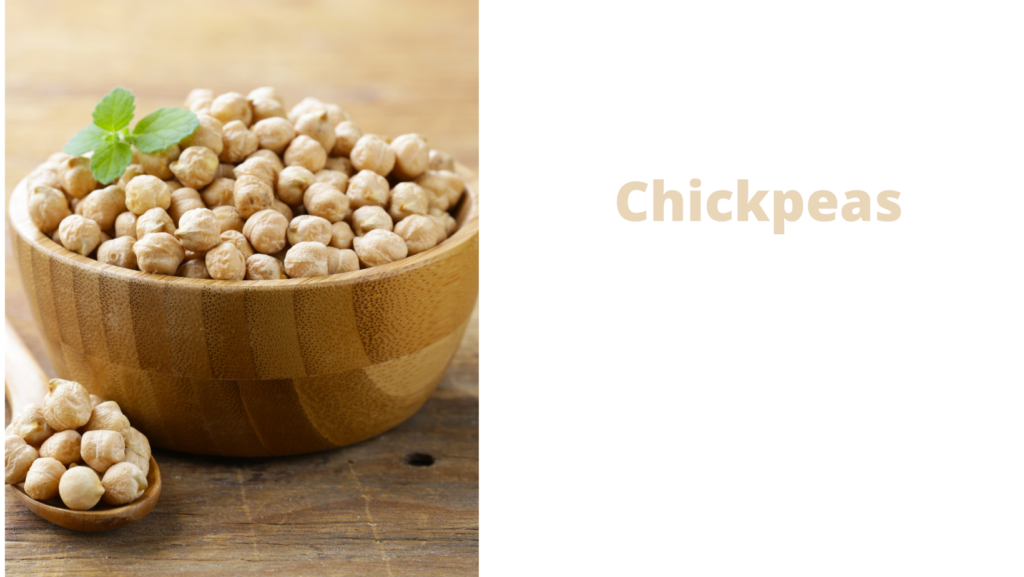
Chickpeas can be used to make hummus, curry, soup, and even dessert! Lentils, however, are perfect for making hearty stews and salads. So next time you’re looking for a protein-packed meal, be sure to give these two ingredients a try.
Tofu vs. Tempeh
Tofu and tempeh are two great options if you’re looking for a vegan protein that’s a little more exciting than beans. Tofu is made from soybeans and has a versatile, mild flavor.
Tempeh, on the other hand, is a fermented soybean product with a slightly nutty flavor. These proteins are perfect for stir-fries, curries, and other Asian-inspired dishes.
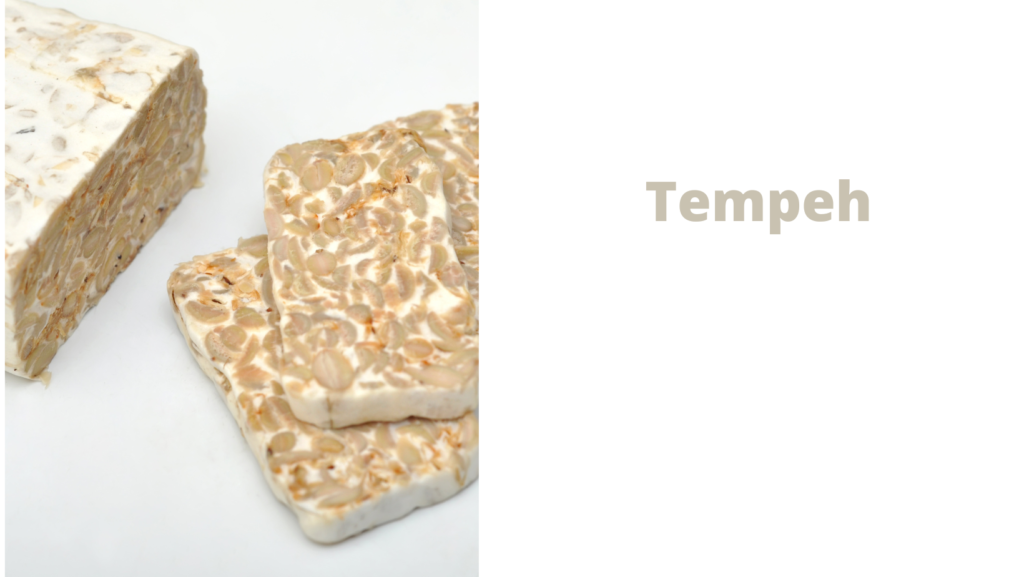
Seeds and Nuts
Seeds and nuts are two of the best options for plant-based protein. Grains such as chia and hemp are packed with protein, fiber, and other nutrients. And they’re incredibly versatile – you can add them.
How to calculate vegan protein needs?
According to the Centers for Disease Control and Prevention (CDC), adults’ recommended daily protein intake is 46 grams per day. However, this number is based on the average protein needs of omnivorous adults and may not be appropriate for those following a vegan diet.
So, how much protein do vegans need? The answer depends on several factors, including age, activity level, and muscle mass. To get an accurate estimate of your protein needs, it’s best to consult a registered dietitian or certified nutritionist.
However, some general guidelines can be used to calculate vegan protein needs. For example, the Academy of Nutrition and Dietetics recommends that adult vegans consume 0.36 grams of protein per pound of body weight (0.8 grams per kilogram) daily.
This means a vegan adult weighing 150 pounds (68 kg) would need 54 grams of protein per day. Active vegans and those building muscle mass may need slightly more protein, while older adults may need less. With a little trial and error, you should be able to find the right amount of protein to support your health and fitness goals.
Conclusion
Many plant-based proteins are available to vegans, including tofu, tempeh, edamame beans, chickpeas, lentils, seeds, and nuts. Tofu is famous because it is low in fat and cholesterol and contains all the essential amino acids.
Tempeh is also a good source of protein and has a slightly nuttier flavor than tofu. Both are perfect for stir-fries, curries, and other Asian-inspired dishes. Beans, lentils, chickpeas, and seeds are good sources of protein and fiber. Nuts are high in protein and healthy fats, making them a good choice for snacks or added protein in meals. Plant-based proteins are a healthier option than meat-based proteins and can provide all the nutrients the body needs.
Aurelia is the Editor-in-Chief of The Graceful Kitchen, a vegan lifestyle blog that focuses on delicious, nutritious, and ethical eating. A lifelong vegan, Aurelia is passionate about sharing her love of plant-based cuisine with others. She is a regular contributor to several online and print publications, and has been interviewed by major news outlets about the benefits of a vegan diet. In her free time, Aurelia enjoys cooking, hiking, and spending time with her cats.
